How World Series Cycling plans to reinvent the sport
Gifted Group's Jonathan Price talks to Cyclingnews
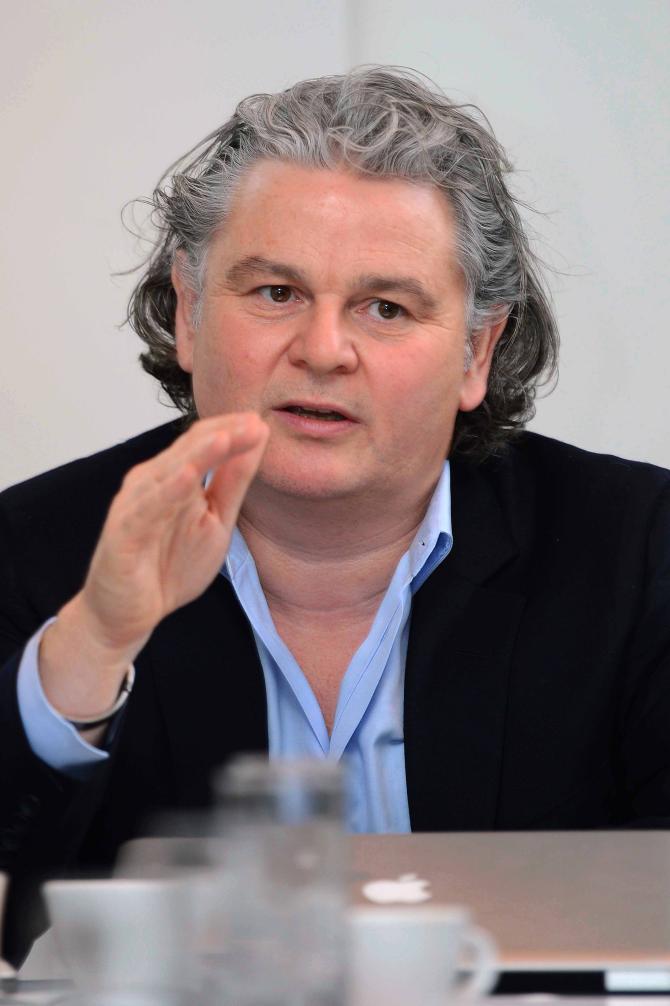
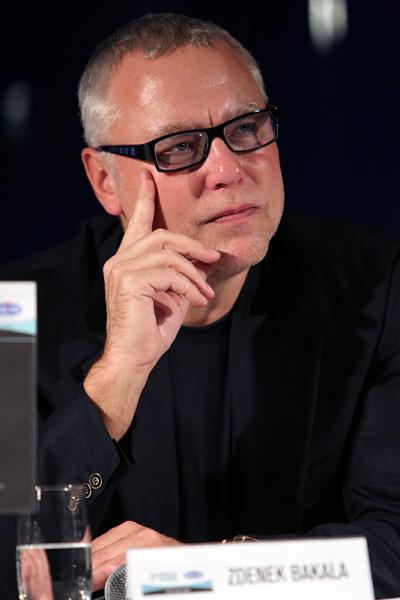
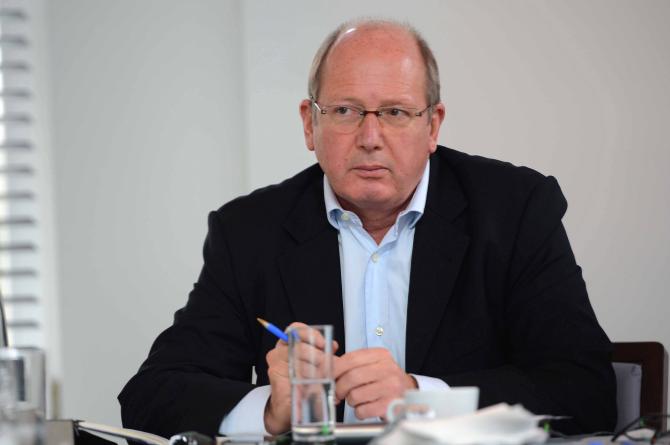
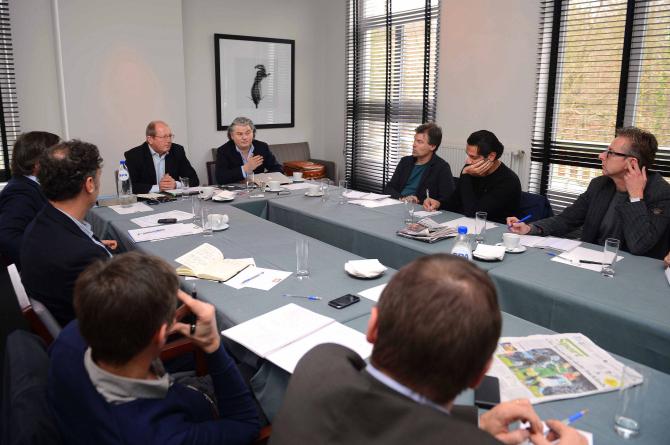
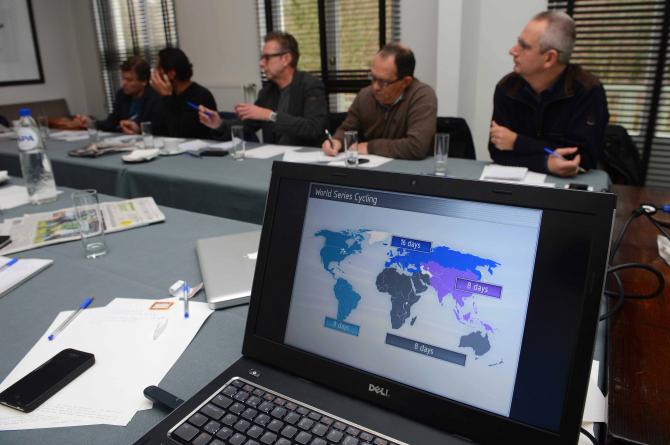
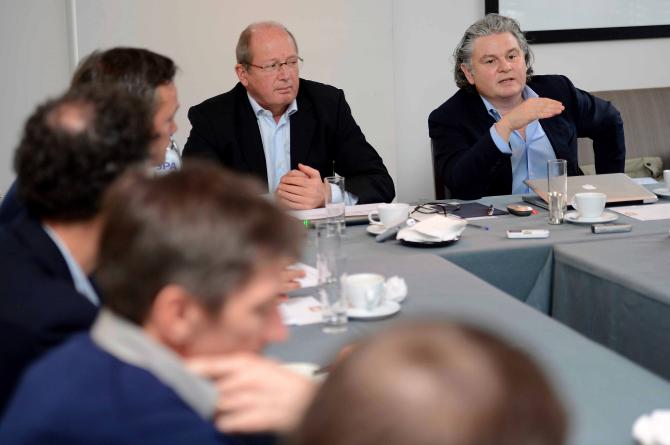
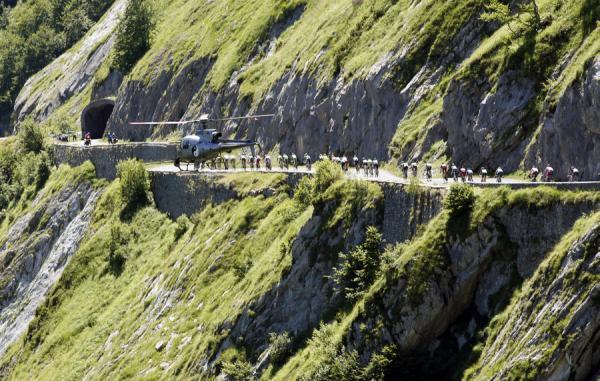
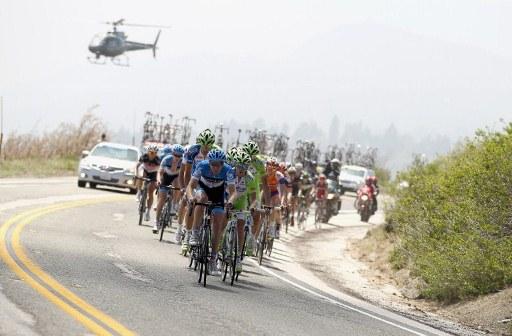
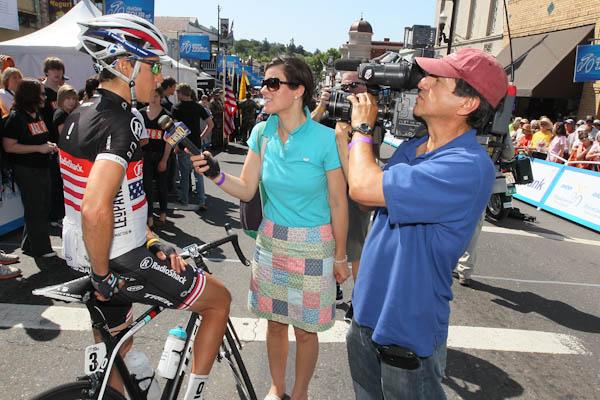
For more than a year rumours spread about the founding of a cycling breakaway league. On Monday Cyclingnews was one of the selected media who sat down with the men behind the World Series Cycling (WSC) project. Jonathan Price from the Gifted Group and business partner Thomas Kurth wanted to get rid of their renegade reputation while throwing their cards on the table to get their project into the next phase. The Gifted Group joined forces with Zdenek Bakala at the end of 2011. The Czech billionaire featured as a bridge between the WSC and the International Cycling Union (UCI). Discussions with the major race organizers have been started.
11 major teams considering plans to break away from the UCI
McQuaid not concerned with breakaway league threat
UCI ramping up pressure on teams over breakaway league
Breakaway cycling league backed by Rothschild
Details of Rothschild's cycling 'breakaway league' revealed
UCI/GCP move to scupper breakaway plans
Bakala adds weight to cycling reform and breakaway league
Cycling Breakaway League: A Brave New World
RadioShack-Nissan said to have signed up for “breakaway” cycling league
"We're working with the UCI and Zdenek [Bakala] to build a competitive product that we think cycling fans worldwide want and which is good for the sport," Jonathan Price said.
In the plans that were revealed on Monday the WSC is founded by eight current WorldTour teams, not including British top team Sky Procycling from Tour de France winner Bradley Wiggins. The calendar would feature 10 new worldwide Grand Prix 4-day events alongside the three Grand Tours and six of the major one-day classics (Milan-San Remo, Tour of Flanders, Paris-Roubaix, Amstel Gold Race, Liège-Bastogne-Liège and Giro di Lombardia).
Each Grand Prix (Thursday-Sunday) would feature all the best riders and exist of a sprint stage, a mountain stage, a rolling stage and a time trial; five individual time trials and five team time trials spread over the 10 races. A simplified points structure would crown a world champion team and rider. Use of new technology would be encouraged while franchise regulations and a state-of-the art anti-doping program would eradicate doping. It appears the WSC will create a package which sells better to sponsors and broadcasters.
Eight current WorldTour teams were formally presented on Monday as founders of the WSC project. The eight WSC teams are the Omega Pharma-QuickStep team from investor Zdenek Bakala, Garmin-Sharp (USA), Liquigas-Cannondale (Ita), Movistar (Spa), Vacansoleil-DCM (Ned), Saxo-Tinkoff (Den), RadioShack-Nissan (Lux) and Rabobank Cycling (Ned). The presence of the last team is provisory since sponsor Rabobank has pulled out of the sport and the team is still seeking a way to continue in another identity.
General manager of the WSC-teams is Thomas Kurth. He said the teams are focused on their own issues which made it obvious to get someone like him as independent manager.
"They have no time for projects like this. I have the experience from the G14 [former organization of biggest football teams] to deal with this. I'm trying to deal with the management without being bothered by rider issues. Sometimes the teams are rivals so it's good to have somebody independent," Thomas said.
Get The Leadout Newsletter
The latest race content, interviews, features, reviews and expert buying guides, direct to your inbox!
"We are encouraged by the UCI's stakeholder consultation process launched last week which coincided well with our plans which we have developed over the last two years with our commercial partner, Gifted, and over the end of last year with Zdenek Bakala."
Jonathan Price took his time to explain his plans to Cyclingnews, briefly described above. Below are his answers to our questions.
Q: What is known about the timing of the project?
A: I think in terms of timing it's always easy to talk about vision but there are a lot of practical issues. Having said that there is also a big demand for this sort of product with the broadcast community and with sponsors. I think there's a balance to be struck between the sort of process that you need to go through in a properly-run sport and also responding to the requirements of the market. Because ultimately, if you don't respond to the requirements of the market then you die.
In terms of the Grand Prix Series we are actively involved now in negotiations to start putting together our first race and to entering - what I would call - detailed negotiations on a broadcast deal. That process is now under way. There are other actors in the sport who will have a voice on wider issues. It's not for me as a single person to determine the time scale for that. I think everyone recognizes that there's a need for change... I think I've said it all when you have to react to what the marketplace wants. Otherwise, if you don't do it, other people do it for you.
Q: What about the current race organizers, are they in danger?
A: I don't think so. Firstly, we've spoken to RCS [Giro d'Italia and Giro di Lombardia], we've spoken to Wouter Vandenhaute [Flanders Classics], we've spoken to Heineken and Leo van Vliet [Amstel Gold Race]. I don't want to put words in their mouths but none of them have responded negatively. With regard to RCS we've taken those discussions a stage further, in terms of looking at how we can build an arrangement with them for the participation of our teams in their races and sharing commercial revenues, so that there's a win-win business model. We made an approach to speak to ASO [Amaury Sports Organisation] which we think was correctly. We set WSC up as a company in Luxembourg and we made an approach to ASO through the Luxembourg government, through the minister of Economics, Jeannot Krecké. The response from ASO was that they wanted us to engage with the UCI before they entered into any discussions with us. We've gone ahead with that - which we always intended to do anyway - and so in some time in the future I would expect to sit down with them and have a conversation. I don't personally see this as a threat to any of their business, on the contrary.
We will keep the commercial rights to the races that we set up but we need event organizers. If you look at ASO, RCS, Wouter, Leo... They are all highly experienced race organizers. I see us working with them and making good business out of organizing these races.
Q: What about the smaller organisations?
A: I don't think anyone's talking about participating in any races or trying to damage them. If you look at something like the ATP Tour, there's a sort of hierarchy. In tennis you have the four grand slams, you have the ten 1000-points events and the best players all participate in those fourteen events and the WorldTour finals. So their season is based on 15 core events. Our view is that something similar is needed in cycling. You can build the top level of competition as the top riders are competing in it all the time. Two of the initiatives which are in the documents included support for a competition for emerging riders. We recognize we have an obligation to develop talent in the sport. We'd also like to see a parallel women's series. I think, it's a widely recognized fact now that there needs to be an equality in sports. Women's sports have advanced rapidly in the past 20 years. We need to make sure we're looking after 50 percent of the population [laughs]. You don't have to do that in a paternal sense. You look at the quality of the product they produce. Look at the Olympic road race. In my country there's a huge level of support for the women's cyclists in Great Britain. That it's different in other countries? It has to change.
Q: Currently organizers receive the television revenues. Why would they share them with someone else?
A: Why would they? If we can demonstrate that we can deliver an increase in the value of their races then it makes sense for them to share the benefits with us. That goes back to the lack of shared interest. At the moment the model that exists doesn't encourage people to work together. It encourages people to take advantage of the other parties. What we want to create here is something where everyone sees value in moving in the same direction. For a race organizer there's a big commitment here to deliver a clean sport. If you have for example a beautiful race like the Tour de France and you put the effort behind it every year and then you see it being damaged by doping then that must be hugely frustrating. Firstly, there's a real commitment here to get a clean sport that can only be advantageous. Secondly, there's a genuine business opportunity for the race organizers in terms of working with us to organize the races. Thirdly, our ambition's clear to set these races up around the world in new markets. Those are markets which currently don't make a huge contribution to the business of the existing race organizers.
One of the problems that I perceived previously, when people have spoken about wanting to develop the cycling calendar it's always been based on going to the ASO and saying: 'You have a cake and we have a cake. If we put it together we have something bigger and we share it.' But actually you have ASO which has a cake like this [Price spreads his arms wide open] and the other guys with a cupcake like that [Price leaves a tiny space between two fingers]. We're prepared to deliver real value here. We know the things that will make a difference to everyone. If we invest in this as we're doing and create it then it can help everyone. On that basis then we should share something bigger. We're not asking for a percentage of what you've built to date. We're talking about where we can help you deliver more value.
Q: Isn't there a conflict of interest with Bakala being both an investor and competitor?
A: There's a clear distinction in this regard between QuickStep the team and Zdenek Bakala the investor. He has a whole host of business interests other than QuickStep. Without being disrespectful to QuickStep I think they're significantly bigger. I think the idea that as an investor he would try to look after the interests of his team is erroneous. I also think as well that there are a whole host of ways when you set up a company and put together a business that you can ensure that those conflicts of interests don't arise, in terms of people who sit on boards, in terms of shareholder agreements. I think he very well understands that. I'm confident that we'll put in place some very practical solutions to prevent that from arising.
Q: Will more than Mr Bakala's investment (between 10-20 million euros) be needed to make the project happen?
A: Again, one of the reasons why we're comfortable working with him is that it's clear that if that were needed he has the ability to do it. Equally, this is not meant to be a charity. The whole reason we've put this project together is because we believe there's a significant commercial opportunity. And on that basis we expect it to be making money for its participants and not calling upon them to underwrite it. It's like any other business. Sometimes you need to invest at the start to create the platform for that enterprise.
Q: Not among the eight founding teams is the best WorldTour team of last season, Sky Procycling. Why is that?
A: It's because we started this project with eight teams. They - I think it’s for them to comment on any particular reasons - but I think their focus during an Olympic year was very much on that program and the Tour de France. We would very much like them to join this program.
There's been a degree of fear around this project that we - the so-called breakaway which we've never been - were somehow going to kind of incur the displeasure of the UCI and that therefore being involved in it would cause trouble. I think now teams come to realize that's not the case. On the contrary, we want to work with the UCI; we have the funding to put it together from Mr Bakala. We want to do this with the stakeholders in the sport and there's no reason to be fearful and every reason to participate in the process of reforming the sport. UCI has made an open invitation in the last week to all stakeholders in the sport to participate in this process. They clearly made that invitation in good faith and I don't see this initiative as anything other than sort of responding to that and putting our cards on the table about what we'd like to see.
Q: Will there be a brand new race or will old races be converted into the Grand Prix format of four-race days with a time trial (individual or team), rolling stage, mountain stage and a sprint stage?
A: It could be a mixture of both. [...] Right now we're working on a first new Grand Prix. I'll say where when it's ready. [...] There's certain markets which are not covered by the top level of cycling at the moment where we want to create new races. Equally, there are existing race organizers who see the value of what we're building and believe that by working with us on this format we can deliver better value for them. We're open to those discussions too.
Q: Who will run the doping testing?
A: The way we see it happening is all through UCI. They are the regulator of the sport. They make the sporting and technical regulations. We're not seeking any change in that. We've made a clear commitment to them that we understand that and that we want to work within it. There are a lot of people out there who said a lot of negative things about the UCI. Firstly, it's easy to comment on a federation but a lot harder to run one. Secondly, there has always been a financial limit on their anti-doping program. I'm sure that if you asked Pat McQuaid he would like an unlimited budget for his anti-doping program. That's one of the things that we are committed to here. The teams already make a significant contribution here financially. We went to a independent testing agency and asked them: 'if money wasn't the object and you could put together your dream program for 280 riders, how much would it cost?' The answer was four million euros. So that's basically what we've put in our budget. The way we see it, this has to be under the auspices of UCI, has to adhere to the WADA-code but there are some other things that we can add to it like funding and the use of employment contracts for sanctions which can all help to deliver a clean sport.
Q: There are already four-day stage races throughout the world. What is the radical change here? Why will people think that this project is different?
A: It will be different because there will be ten of them. It will be a coherent product. It will have a proper global broadcast platform. It will have the best riders in every race. A lot of them currently don't. If you want to see the best cyclists go head to head throughout the series this is the way to see it. That's fundamentally what it's about.
Q: I think I already know who the best sprinter, climber, time trialist or best rider on a rolling stage is. Why do I need the WSC for that?
A: If they're the best then they're the best. Sport is dynamic, it changes. So you can be the best one week and not be the best the next week. You can be the best one year but not be the best the next year. The whole story of how that shifts, when new athletes emerge and existing champions lose their titles make sport what it is. Sport is uncertain. You say that everybody knows who the best time trialist is but how do you actually recognize him? The best time trialist didn't participate in the world championships this year. Again, it's about that coherent championships structure and having a proper narrative throughout the season that the sport follows. You say everybody knows who the best time trialist is and a keen cycling follower does but the average sports fan doesn't. An awful lot of people out there who have heard of Bradley Wiggins, who have heard of Mark Cavendish but if you asked them to provide you with a lucid explanation of who's the best at what they struggled to explain it to you. The whole sport needs to simplify itself. The message is too complicated right now.